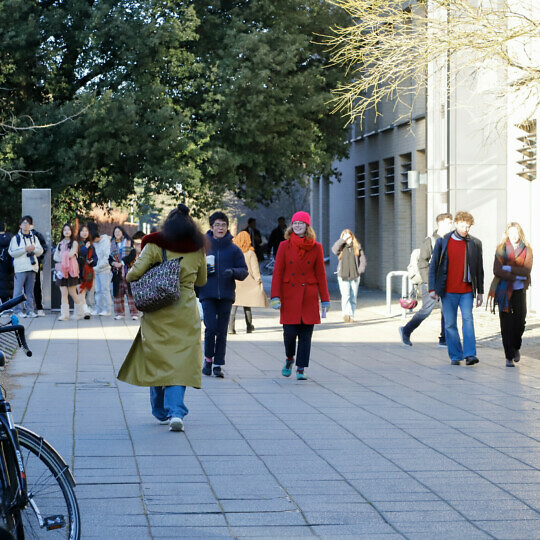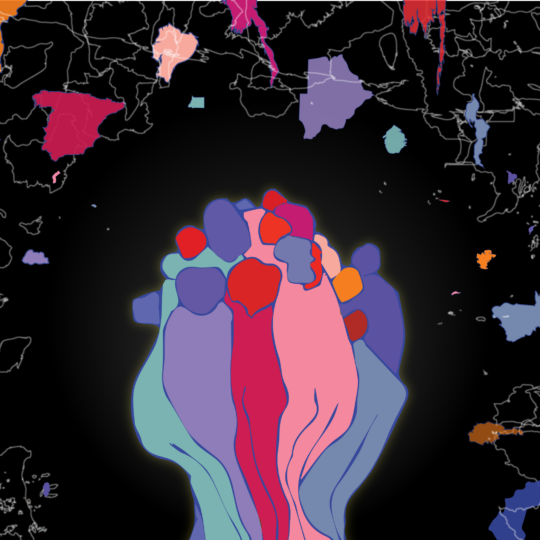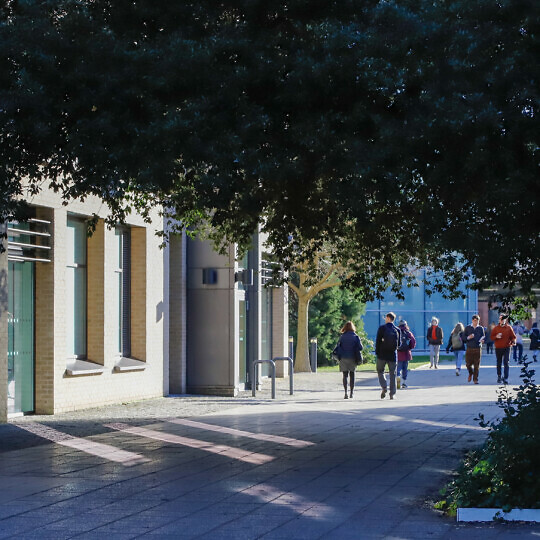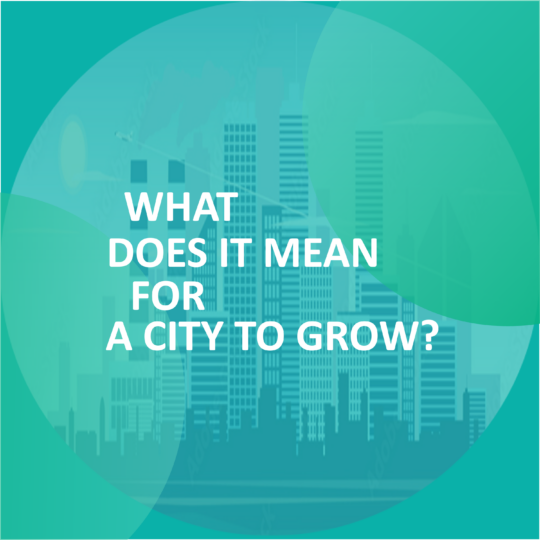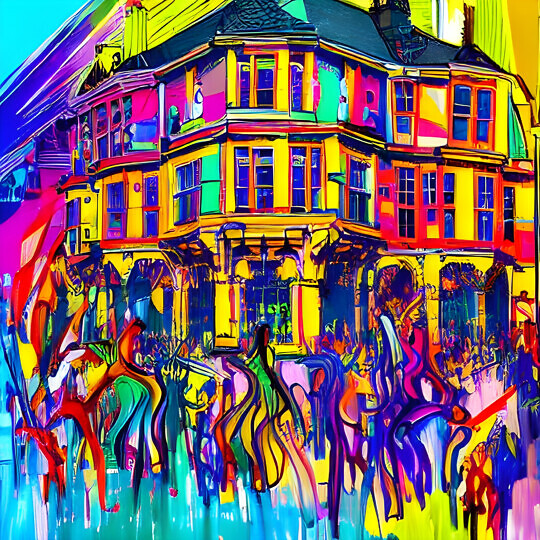| 22 Feb 2019 - 23 Feb 2019 | All day | SG1 and SG2, Alison Richard Building | |
- Description
- Programme
- Abstracts
Description
Registration for this conference is now closed.
Convenor
Bryan Cameron (University of Cambridge)
Summary
This symposium confronts Spain’s political past, present and future. Bringing together a group of distinguished scholars working in Britain, Spain and the United States, the conference will centre on on the eruption of populist mobilizations from 2011 to the present—both in Spain and across the globe—by tarrying with expressions of dissent and indignation and the emergence of new political parties such as Podemos and Ciudadanos. The explosion of populism and populist discourse in Spain, as the symposium will demonstrate, has forever transformed our understanding of contemporary democratic societies everywhere. It should come as no surprise, therefore, that the populist assault on the 40-year-old Regime of 1978 in Spain has been dismissed by former heads of state as nothing more than a ‘politics of emotion’ (Felipe González) that ‘degrades the political culture of Spanish democracy’ (José María Aznar). Wary of populism’s ever-expanding grasp, former world leaders such as Tony Blair have re-emerged, warning domestic and international audiences alike that even ‘where populism does not win’—referring to the Dutch general election (15 March 2017)—‘it influences and distorts debate.’ Similarly, prior to the U.S. presidential election (8 November 2016), Bill Clinton cautioned voters regarding the consequences of ‘negative populism,’ which, as he claimed, ‘plays on popular passions’ in order to manipulate the electoral process.
'Mobilizing Affect' engages the so-called affective turn in the social sciences and humanities while pushing against historically negative representations of populism as ‘an antipolitics’ (Jon Beasley-Murray). Accordingly, the symposium will examine populism’s potential to inscribe a radical alternative within Spain’s contemporary political order. Speakers will analyze the threat posed by public assembly, populist discourse and counter-hegemonic expression in twentieth- and twenty-first century cultural output (literature, television, cinema, political manifestos, etc.). Drawing upon the violent connotations often linked to populism, participants will explore the (re-) emergence of the political in contemporary Spain and the mobilization of what Chantal Mouffe characterizes as the passions—or the antagonistic confrontation between collective political identities in the twenty-first century. The affective dimension of political identification, as Mouffe has argued, mobilizes libidinal instincts whilst forging passionate relations between members of any group or collective. These emotional ties, as the conference aims to show, are not only key for establishing new political identifications, they are required to shatter the post-political conjuncture in which a nation-state such as Spain finds itself ensnared.
Sponsors

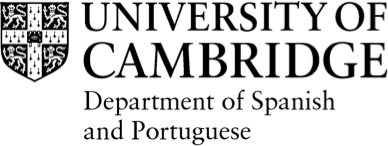
Supported by the Centre for Research in the Arts, Social Sciences and Humanities (CRASSH) and the University of Cambridge's Department of Spanish & Portuguese.
Administrative assistance: events@crassh.cam.ac.uk
Unfortunately, we are unable to arrange or book accommodation for registrants. The following websites may be of help:
Programme
| Day 1 - Friday 22 February | |
| 9.15 - 9.45 | Registration and Tea/Coffee |
| 9.45 - 10.00 | Welcome & Introduction |
| 10.00 - 11.15 | Session 1: Social Mobilization and the Crisis of Institutional Politics in Spain Chair: Parker Lawson (University of Cambridge)
Eduardo Romanos (Universidad Complutense, Madrid) 'From Protest in the Streets to Party-System Change: Spain’s Indignados Movement and the Growth of Podemos'
Jeff Miley (University of Cambridge) 'Repression and Resistance in the Struggle for Catalan Self-Determination' |
| 11.15 - 11.45 | Break |
| 11.45 - 13.00 | Session 2: Populism and the Left-Right Divide in Spain Chair: Samantha Edwards (University of Cambridge)
Emmy Eklundh (King’s College London) 'The Problem of Socialist Strategy: Intentionality and Spontaneity in On Populist Reason'
Bécquer Seguín (Johns Hopkins University) 'Ciudadanos and the Rise of Technocratic Nationalism' |
| 13.00 - 14.15 | Lunch |
| 14.15 - 15.30 | Session 3: Artistic Dissidence in the Museum and on the Streets Chair: Neylan Bagcioglu (University of Cambridge)
Yaiza Hernández Velázquez (Central Saint Martins, University of the Arts London) 'Art, Social Movements and New Municipalisms: A Brief History of Alliances and Ruptures'
Sara Nadal-Melsió (Independent Scholar) 'The Political Affect of Anachronism: A Sentimental Capture of the Archive' |
| 15.30 - 16.30 | Break |
| 16.30 - 18.00 | MacColl Lecture Chantal Mouffe (University of Westminster) 'Radical Politics: An Agonistic Approach' |
| 18.00 - 18.45 | Reception |
| Day 2 - Saturday 23 February | |
| 9.45 - 10.00 | Registration and Tea/Coffee |
| 10.00 - 11.15 | Session 4: National and Democratic Histories in the Autonomías Chair: Rhiannon McGlade (University of Cambridge)
Helena Miguélez-Carballeira (Bangor University) 'Disability and Post-ETA Poetics'
Duncan Wheeler (University of Leeds) 'Fariña: A Litmus Test for Spanish Democracy' |
| 11.15 - 11.45 | Break |
| 11.45 - 13.00 | Session 5: Spatial Politics in the Metropole and Beyond Chair: Natasha Tanna (University of Cambridge)
Jonathan Snyder (Boston University, Madrid) 'Queer Formations on the Move: Mapping the Creative, Kinetic Protest Actions Unfolding in 1990s Madrid'
Carlos Varón González (University of California, Riverside) 'Pueblo Populism: Cathecting the Rural in Contemporary Spanish Poetry' |
| 13.00 - 14.00 | Lunch |
| 14.00 - 15.45 | Session 6: Querying Capitalism and the Future in Spanish Cinema Chair: Dominic Keown (University of Cambridge)
Mari Paz Balibrea (Birkbeck College) 'Framing Capital as the Antagonist: Political Subjectivity and the Limits of Populism in the Films Mercado de futuros, Cerca de tu casa and La mano invisible'
Bryan Cameron (University of Cambridge) '”La cancelación del futuro” and the Utopian Impulse in (Post-) Crisis Cinema'
Belén Vidal (King’s College London) 'Cinephilic Affects After the End of Cinema' |
| 15.45 - 16.00 | Break |
| 16.00 - 16.30 | Closing Discussion Response by Konstantinos Kornetis (University of Oxford) |
Abstracts
Mari Paz Balibrea (Birkbeck College)
'Framing Capital as the Antagonist: Political Subjectivity and the Limits of Populism in the Films Mercado de futuros, Cerca de tu casa and La mano invisible'
It is widely accepted that the systemic nature of 2008’s Spanish crisis unleashed the spreading of politicization, multiplying the articulation of critical thinking against the status quo amongst the citizenry. To the extent that this widespread discontent was able to coalesce in sufficiently coherent political collective identities,we can speak of populism as the political form of the crisis. Podemos, Ciudadanos, Junts pel Sí/per Catalunya are examples of this phenomenon and of how it can take different ideological forms. Amongst these, in my talk I will be concerned with leftist populism: its premises, conditions of possibility and limitations. My focus will be provided by the ways in which the crisis makes Capitalism visible as a destructive and deceptive force and, as such, it becomes part of the foundation making up new political subjectivities and collective identities. I am interested in how this new visibility of Capital is politically conveyed, and film provides me with an obvious outlet to explore it. My objects of study will be two feature films and one documentary: Mercado de futuros (Dir. Mercedes Álvarez, 2011), La mano invisible (Dir. David Macián, 2016) and Cerca de tu casa (Dir. Eduard Cortés, 2016). I will be analysing the different ways in which these films visualize the production of the political subject that results from a confrontation with Capital. Furthermore, and key to a reflection on leftist populism, I will explore how these films deal with the (im)possibility of articulating these subjectivities into collectives and how this problematization, in turn, is pointing to a limit in populist politics.
Bryan Cameron (University of Cambridge)
'”La cancelación del futuro” and the Utopian Impulse in (Post-) Crisis Cinema'
On 7 April 2011, nearly 10,000 young adults took to the streets of Madrid to participate in a public protest organized by Juventud Sin Futuro. Comprised of student collectives based in universities throughout the Spanish capital, Juventud Sin Futuro denounced the government’s 'constante recorte de nuestros derechos'. The unrelenting nature of these cuts, the group insisted, threatened to 'condenar a toda nuestra generación a un futuro más qué incierto'. It is precisely this future that interests me as I reflect upon the embeddedness of crisis in Spanish cinema from 2008 to the present. Following the work of Marina Garcés, I will argue that the dissolution of futurity and an obsession with apocalyptic discourse have engendered a sense of powerlessness, which can be seen in films such as En tierra extraña (Icíar Bollaín, 2014), La herida (Fernando Franco, 2013) and Hermosa juventud (Jaime Rosales, 2014). While this pervasive sense of immobility has come to define a ‘lost generation’ of young Spaniards—living at home and abroad—my presentation will focus on a group of texts that re-tool narratives of failure, loss and precarity. Recasting this generation as frustrated and not misplaced, missing or adrift, I will examine films that operate as manuals, reports or blueprints for moving beyond what Lauren Berlant has described 'the thick ongoingness' permeating crisis cultures across the planet. Accordingly, I will consider the ways in which Spanish artists working in a range of filmic genres have attempted to move beyond apocalyptic imaginaries, contemplating the ways in which the future can be reclaimed and reconceived not only in Spain, but in liberal democracies all over the globe.
Emmy Eklundh (King’s College London)
'The Problem of Socialist Strategy: Intentionality and Spontaneity in On Populist Reason'
In recent years, it has become increasingly prevalent to treat Ernesto Laclau’s theory of populism as not simply a theory of politics, but as a theory for politics. Political parties and movements, such as Podemos in Spain, have seen in Laclau’s work a blueprint for political action, and have moulded their projects along the lines described in On Populist Reason (2005). One of the most important aspects of this book is how Laclau identifies the articulation of a People as the way to create counter-hegemony and, thus, challenge the status quo. By creating chains of equivalence between groups who may previously have felt isolated from each other, there is a possibility for transversal articulations of commonality, the affective investment in an empty signifier.
In this paper, I will draw the attention to the problem of intentionality in Laclau. Since his theories are now being used as instruction manuals, we must ask whether Laclau’s theory permits the active construction of affective investment, and whether a political party or movement can induce attachment to a certain signifier in the crowd. Is it possible to manage the articulation of a People, or must it occur spontaneously? The paper will begin by identifying the central role of affect in Laclau’s work, and argue that affective investment in a signifier is not necessarily a manageable process. In the second part, the paper will use the case of Podemos to illustrate how affective investment becomes a means to an end: articulating a People is a strategy to win electoral support. Podemos are thus treating affective investment as something manageable and instrumental, and sees the party as the vanguard in the process of articulation.
Where psychoanalysis sees affective investment as constitutive of any political identity and an essentially unmanageable practice, the recent interpretations of Laclau are clearly favouring a view of affect as subsumed under the strategic goals of the party; affective investment must be intentional. The paper concludes that the case of Podemos illustrates a deeper tension within Laclau’s theory of populism between its psychoanalytical roots and the importance of socialist strategy.
Yaiza Hernández Velázquez (Central Saint Martins, University of the Arts London)
'Art, Social Movements and New Municipalisms: A Brief History of Alliances and Ruptures'
This paper briefly sketches a long history of close relations between artist collectives, art institutions and social movements in Spain. Experiences like those of El Laboratorio, La Fiambrera Obrera, Yo Mango, Precarias a la Deriva and many others provided examples of artistic-political practices that leaving behind the “sad affects” of previous generations were fuelled instead by creativity, humour and collective joy. Some major art institutions became allies to this process. The project Las Agencias at the Museu d’Art Contemporani de Barcelona (MACBA) in the early 2000s and the support that the Museo Nacional Centro de Arte Reina Sofía lent to the Fundación de los Comunes a decade later being perhaps the most salient examples.
It is argued that this intertwining of artistic and political intelligence contributed in significant ways to build up the appeal of the 15-M movement and, subsequently, of the campaigns to gain power at a municipal level for Barcelona en Comú and Ahora Madrid. However, and perhaps unsurprisingly, culture turned out to be a much more contentious issue than could have been expected for the New Municipalist councils. Barcelona en Comú quickly ceded power over culture to the PSOE as part of a difficult negotiating process. In Madrid the initially bold project to redefine cultural policy by the coalition led by Manuela Carmena was made the subject of virulent, conservative criticism by the political opposition and part of the mainstream press and largely abandoned. This paper critically interrogates this trajectory to elucidate what role art can properly plays in such a mobilization of affect.
Helena Miguélez-Carballeira (Bangor University)
'Disability and Post-ETA Poetics'
Since the publication of Ramon Saizarbitoria’s novel Ehun metro in 1976, cultural engagement with violent national conflict in the Basque Country and Spain has had a long and variegated history. Literary and filmic studies have pointed to some of the characteristics of ETA-related cultural products, which – particularly in those responding to State-aligned perspectives – include stereotypical representations of Basque identity as intrinsically linked to terrorism (Gabilondo 2008) and of the Basque north as a hostile and fearsome territory (Lewis 2005). Recently I have argued that ETA’s definitive abandonment of its armed struggle campaign in October 2011 has marked the beginning of a new cycle in the field of cultural representations of the Basque conflict (Miguélez-Carballeira 2017). This 'post-ETA poetics' has been marked by an intense preoccupation with memory politics on the one hand, and a differently inflected use of the romantic/familial metaphor that had recurred in previous decades, on the other. Whilst in a pre-2011 context, the metaphor of the impossibility of Basque-Spanish love had acted as a harbinger of death – see e.g. Eloy de la Iglesia’s unmade film Galopa y corta el viento (1981) or Imanol Uribe’s Días contados (1994) – post-ETA films such as Ocho apellidos vascos (Lázaro 2015) and Cuerpo de élite (Mazón 2016) reframe the romantic love metaphor as the site of possible post-conflict closure. In this paper, I explore the role that disability plays in filmic and literary representations of post-ETA closure, with particular reference to Luis Marías’ Fuego (2014) and Fernando Aramburu’s best-selling novel Patria (2016). Departing from recent critical discussions of disability in Spanish film and literature in relation to inclusivity and cultural pluralism (Marr 2013), I will argue that, in the intensely polarised context for media and cultural representations of the Basque conflict in Spain, the possibility of post-ETA closure is often envisaged via the spectacularisation (and thus the instrumentalisation) of disability, which is used in these works to ‘mobilise affect’ towards a series of state-sanctioned positions with regard to victimhood, forgiveness and post-conflict reconciliation.
Jeff Miley (University of Cambridge)
'Repression and Resistance in the Struggle for Catalan Self-Determination'
This paper focuses on the dialectic of repression and resistance at work in the most recent wave of contentious politics in Catalonia. It analyses the contemporary struggle for self-determination in Catalonia from an historical and internationalist perspective. It begins, in a Benjaminian vein, with an attempt to recover Catalonia’s revolutionary past, to 'blast' this past 'out of the continuum of history', to 'appropriate its memory as it flashes up in a moment of danger'. It proceeds by emphasising the faint echoes of this revolutionary past in the wave of contentious politics that has swept the region in the past decade, since the onset of the so-called Eurozone crisis. It also highlights the continuing relevance of Spain’s colonial past for understanding the contours and confines of contemporary aspirations and events. In addition, the paper seeks to provide an interpretation of the region’s recent and ongoing cycle of contentious politics through the lens of securitisation and state repression. It hones in on three emblematic moments, each of which reveals a different dimension of securitisation and repression by the state. The first, from spring 2011, associated with the indignado movement, with a focus on their violent removal by the police from the Plaça Catalunya in May, and the attempt to surround the Catalan Parliament to disrupt the budget debate the following month, including a comparison of the movement’s tactics and strategy with those of the Spanish anarchists from the 'heroic years'. The second, from summer 2017, associated with the 'terrorist' attack on the Ramblas, and the police and public reactions to it against the backdrop of the run-up to the independence referendum, including an emphasis on the continuing relevance of Spain’s colonial past for understanding this brutal and desperate act. The third, from fall of 2017, associated with the referendum itself, with a focus on the interaction between police violence and judicial repression, including a discussion of the dilemma that the recent authoritarian turn in the Spanish polity reveals for democratic theory and practice in relation to the problem of permanent minorities.
Sara Nadal-Melsió (Independent Scholar)
'The Political Affect of Anachronism: A Sentimental Capture of the Archive'
The art gallery and the museum have become key contexts for evaluating anachronism as a source of political affect that seeks the future in the past. By going back to Karl Marx’s understanding of the backward movement of bourgeois revolution in The Eighteenth Brumaire, I will explore the compensatory illusion of the past as a site of both political mobilization and sentimental capture.
There were two exhibitions in Barcelona at the beginning of 2017 that fully embraced anachronism as a source of political affect, an approach has by now become hegemonic in museographic practices. The first was a retrospective of Alexander Kluge’s political interventions into the protocols of militant cinema, Gardens of Cooperation. The other – yet another instance of the Museu d’Art Contemporani de Barcelona’s continued rehistoricization of Spain’s cultural dissidences – titled Gelatina dura: Històries escamotejades dels 80, focused on the visual counterculture of late Francoism and the Transición up to the Barcelona Olympics and the specularization of the city. In addition, the Filmoteca de Catalunya screened a series of rarely seen films of the period alongside more recent attempts to engage with and reenact this filmic and historical legacy. These two shows, as well as the film series, shared a critical genealogy and presented a common goal: a call for alternatives to the official chronological understanding of temporal progression and a affective political investment in the anachronism of images that interrupt that continuum.
Yet the perceived need for chronological precedence deserves to be explored critically, and I propose we read it as a symptom of a certain temporal turn in the understanding of political art – as even the most cursory glimpse at the programming of Spanish museums, galleries and filmotecas in the last ten years will confirm. This need to document, archive and even re-enact, belongs to a very distinct political genealogy and should not be conflated with the contemporary call for memorialization or the concomitant emergence of nostalgia in the Spanish public sphere. This documentary impulse is explicitly concerned with history as a political possibility rather than with memory as such.
Eduardo Romanos (Universidad Complutense, Madrid)
'From Protest in the Streets to Party-System Change: Spain’s Indignados Movement and the Growth of Podemos'
Over the past few years Spain has undergone a severe political crisis. The two-party system which has dominated the political scene since the transition to democracy broke down with the fragmentation of parliaments. As was the case with anti-austerity contention in Latin America, the consensus among major parties concerning the neoliberal reforms implemented during the economic crisis has been strongly criticized on the Spanish streets. In this context, a process of programmatic de-alignment with systemic consequences has taken place. The party system has not been able to channel those social groups that disagree with the market-oriented orthodox system and has eventually imploded.
In any case, the changes undergone by the party system cannot be blamed as much on the economic crisis as on the associated political crisis, which is also a democratic crisis. Even more than the economic crisis, corruption and the democratic deficit were the main motives for participation in the protest movement that emerged in May 2011, the so-called indignados. This movement changed the conversation in the street; a conversation that some new political parties have tried to continue within the institutions. This process has, however, setbacks and limitations.
In Spain, the consequences of the Great Recession were aggravated by the neoliberal policies adopted by both center-left and center-right governments under pressure from electorally unaccountable institutions and the maneuvers of speculators. These policies have eroded trust in political institutions and highlighted the democratic deficit of a political system that closes-off the participation channels of civil society. These are the main reasons for such levels of contention, first on the streets and later in parliaments.
Thousands of people participated in a protest movement that has sought to shift responsibility for the crisis from the individual to the collective sphere; from the unemployed, the pensioner, the evicted, the youths and other individuals who live precariously, to the political and economic elites. This movement demanded that authorities reverse the cuts to public services and civil rights, that they strengthen control and transparency mechanisms, and create new channels to allow citizens access to decision-making.
The protest cycle had a great impact upon public opinion, but not upon the authorities, who have remained oblivious to the protestors’ demands. In fact, the most direct responses to these protests have been negative – notably more restrictive laws that expand the range of punishable behavior in the context of protests. In this environment, some activists created new political parties with which to enter the institutions, reverse neoliberal policies and change the political system from within.
What is the relationship between the protest movement and the new parties? How can we understand the limited growth of the new parties given the extraordinary level of social support enjoyed by the protest movement? What are the main differences between the different movement-parties? This paper aims to help solving these questions while suggesting a few tentative lessons that we may learn from Spain in relation to the dynamics observed in Latin America in the context of previous neoliberal crisis.
Bécquer Seguín (Johns Hopkins University)
'Ciudadanos and the Rise of Technocratic Nationalism'
This paper considers the re-emergence of nationalism in contemporary Spanish populism. The paper is a case study of the party Ciudadanos, which has combined neoliberal technocracy with virulent Spanish nationalism. Bringing together seemingly antithetical regimes of governance, I argue that the party, in fact, presents a different form of populism that has been understudied but is on the rise throughout Europe: populist technocracy. This technocracy in Spain dates back to 1959, when Franco brought in Opus Dei technocrats to liberalize the economy. After the transition to democracy in the 1970s, neoliberalism quickly accommodated itself in the conservative party. Recently, however, neoliberals have become disenchanted with the conservatives, whose religious base, in addition to presenting an image of an outdated society, has kept them from dismantling parts of the welfare state. Since the mid-2000s, neoliberals have developed populist technocracy under the guise of various new political parties, including Ciudadanos. Borrowing such staples of populism as anti-pluralism, a post-ideological vision of society, and the moralistic imagination of politics, centrist and right-wing elites have themselves ended up using the very populist strategies they had previously criticized in order to advance a neoliberal, technocratic agenda. But what most clearly brings Ciudadanos's politics into the realm of populism is its embrace of Spanish nationalism. It is here where, despite the lack of xenophobic rhetoric, the affinities between Ciudadanos and other right-wing populists in Europe, from Viktor Orbán in Hungary to Marine Le Pen in France, become clearest. This paper makes the argument, following the work of the sociologist Dylan Riley, that paying attention to nationalism—as opposed to xenophobia, for example—recovers a class-based account of populism that scholars today have ignored in favor of approaches that emphasize rhetoric and so-called thin-centered ideology.
Jonathan Snyder (Boston University, Madrid)
'Queer Formations on the Move: Mapping the Creative, Kinetic Protest Actions Unfolding in 1990s Madrid'
Emotions bear the potential to spark assembly and even networked communities of insurrection, as evidenced by the mass mobilizations forming in 2011 in the wake of the global financial crisis. In Spain, the affects and emotions taking shape around plural issues in the first 15M protests are inextricable from the critical, collective practices of protesters who read the perceptible sources of outrage and domination, and denounce them. As a kind of intelligence, emotions and affects play an influential function in what compels historically situated subjects not only to take stock of their circumstance, but also to pursue common projects, to hold certain values, to shape adherence to specific ideals or imagined futures. Here, I am interested in returning to other moments of protest in contemporary Spain—particularly, minor actions and demonstrations in recent memory, but none the less significant—to explore the ways in which the participants corporally and performatively act upon the urban environment in protest and, in turn, are themselves 'acted upon' affectively in ways that shape activist group formations. Specifically, my focus here takes up an analysis of the intensities driving the creative collective practices and actions of the queer anti-capitalist circles La Radical Gai and Lesbianas Sin Duda in 1990s Madrid. In kinetic group actions, these queer formations of motile actors would traverse the urban environment, re-signifying it all the while in body, speech, and perceptible sensibility.
What endures from these ephemeral actions are less the imprints or paint marks left on the surfaces of walls, sidewalks, and so on (captured in photo and video documentation of these actions), but rather those impressions made on the participants themselves as they collectively participate in moving-through the city experimentally while reshaping it visibly—haphazardly, in action and on the move—as an action of being and doing together that produces activist subjectivities in collective formation. Taking up a different case than the 15M encampments, which characterized the 2011 protests as fixed, intensely networked nodes of demonstration, in this paper I explore the unfolding, fleeting actions of protesters in motion who function as an oppositional dispositif of counter-power that operates upon the urban environment from chance, hazard, and contingency. These actions in their propensity to humor, risk, and contextual play in novel combination are reported in documentation as responsible, in part, for some of the affective bonds that reenergized mobilization consistently to make protesters 'stick around' and likewise form bonds among them and in adherence to common aims. Perhaps as lesson, then, when the organizational politics of La Radical Gai became more bureaucratic and transactional in its meetings, leaving aside imaginative play as secondary to activist aims, so too did it lose some capacity to motivate—and its convening power to move its participants.
Carlos Varón González (University of California, Riverside)
'Pueblo Populism: Cathecting the Rural in Contemporary Spanish Poetry'
Podemos’ uneven but undeniable electoral success since its foundation in 2014 explains the currency and presence in the public sphere of the term 'populism'. It is both the name that some of its founders give to a political strategy grounded upon the people as the political agent and a pejorative label, deployed by their rivals, to delegitimize the new leftist party. At its best, populism would make a people ('construir pueblo') that re-articulates the political order and foregrounds the common good. There might be a limit to that populism; according to electoral results, Podemos' populist hypotheses seem to have interpellated most successfully an educated, young urban crowd. On the one hand, the hegemony of PSOE and PP in most rural areas might reinforce a sense of rural backwardness, if not reaction. On the other, we can trace a rural turn of contemporary Spanish poetry. Recent publications like Lara Dopazo Ruibal’s ovella (2015), Fruela Fernández’s Una paz europea (2016) and La familia socialista (2018), or María Sánchez’s Diario de campo (2017) seem to indicate a different reaction. They propose a progressive populist attachment to a rural space that respects manual labor without nostalgia, frames Peninsular linguistic difference (Asturian, Galician) within a global landscape, poses a politics beyond metropoles. Libidinal investment into agents, rituals, and spaces neglected and exploited by Spanish late modernization processes, pose rural spaces and lives as an unresolved problem, but also an alternative to hegemonic cultural, economic, and environmental politics. The presentation will focus on Fruela Fernández’s La familia socialista, in which the poetic voice juxtaposes his desencanto with the Spanish and Greek post-2008 populist moment and his own family’s with the PSOE and the Transición, struggling not to let disappointment become paralysis.
Belén Vidal (King’s College London)
'Cinephilic Affects After the End of Cinema'
In this presentation I explore the function of cinephilia through the work of emergent filmmakers and the affective networks they create in the context of the post-2008 economic recession in the post-cinematic (digital) moment. While the period between 2012 and 2014 saw a partial dismantling of the state support for the film industry and the shrinking of the domestic market share for films made in the Spanish state, the specialized press nevertheless found reasons to celebrate in the numbers of newcomers making their first and second films against all odds. These aesthetically hybrid and tonally diverse works include essay films, experimental dramas and absurdist comedies, most of them completed in precarious financial conditions. The labels ‘post-humour’ and ‘Spain’s Other Cinema’ (see Buse and Triana Toribio 2015; Kourelou et al. 2014) have served as provisional critical placeholders for a cinema that hardly makes for a coherent movement but is many ways symptomatic of the global digital turn. This heterogeneous wave has begun to carve a visible space alongside commercial theatrical exhibition through online festivals, curated websites, and touring screenings in cultural centres and cinémathèques. A sense of commonality arises from public networks of friendship between filmmakers, but this nascent film culture also confronts the much larger task of building a shared space with the audience through a variety of textual and extra-textual strategies.
While the accessibility of digital tools (both at the level of production and of promotion of micro-budget films) has made possible for modes of alternative cinema to thrive against the grain of austerity, this paper asks if and how cinephilia itself may enable forms of popular agency in two respects: thorough a commitment to the present in works that nonetheless eschew direct political commentary and styles of social realism, and through the affective re-configuration of the relationship between filmmakers and audiences as a community of actors and participants. I will elaborate on these ideas in a discussion of the free form, no-budget film The Wishful Thinkers (Los ilusos, Jonás Trueba, 2013) and of the collective cinema practices encouraged by the independent production outfit Los Ilusos Films—an ongoing project that cultivates cinephilia as a sensibility enabling such space of exchange. Nostalgically dwelling on the obsolescence of the medium as well as reflecting on the crisis of cinema-going, The Wishful Thinkers has initiated a dialogue with the cinematic past that is oriented to the future, querying the role of cinema face to the crisis’ lasting social and cultural effects—a quest that arguably underpins the project Los Ilusos Films.
Duncan Wheeler (University of Leeds)
'Fariña: A Litmus Test for Spanish Democracy'
It is impossible to understand Spain's Transition without reference to drugs. From having a relatively low consumption rate in 1975, by 1992 heroin addiction was the primary reason for Spain having the highest mortality rates for AIDS in Europe. In Galicia, a toxic combination of social acceptance, political corruption and long-established smuggling routes for tobacco turned the autonomous community into the continent's principal entry-point for cocaine. Local politicians turned a blind-eye to local businessmen turned dealers, whilst Colombian Pablo Escobar's associates were tolerated by central government. Despite this being common knowledge for many years, the 2015 publication of Fariña by investigative journalist Nacho Carretero became a national scandal not so much for its contents but for its subsequent prohibition on the basis of legal action taken by a town mayor. Given the restrictive nature of the Francoist dictatorship, freedom of expression (as enshrined in Article 20 of the 1978 Constitution) has been considered one of the cornerstones of Spanish democratic culture. It is nevertheless indicative of a democratic deficit that a country which decriminalised heroin consumption in the 1980s now limits press freedom in relation to establishing a mature political debate about the formative role drugs performed in contemporary Spanish culture. In this paper, I will begin with a sociological overview of illicit substances in late twentieth and early twenty-first century Spain before offering a critical reading of both Fariña and the subsequent television adaptation, the most accomplished attempt yet to produce a Spanish equivalent to Netflix series Narcos. From both an ideological and industrial perspective, I will suggest it is no coincidence that the private network Antena 3 as opposed to the state broadcasting channel produced Fariña, before going on to examine claims that actors in the series have subsequently been vetoed from Galician public television.


